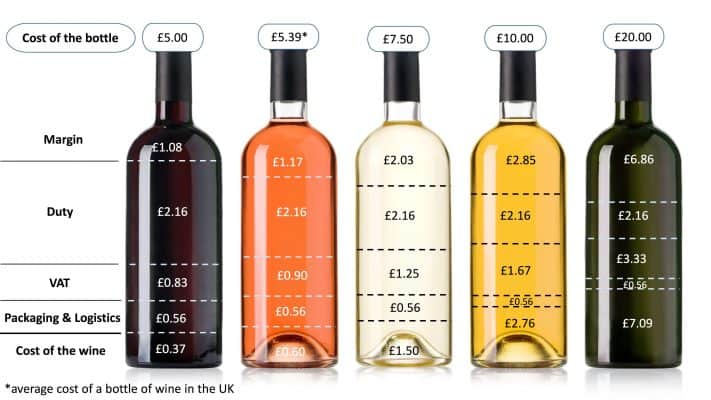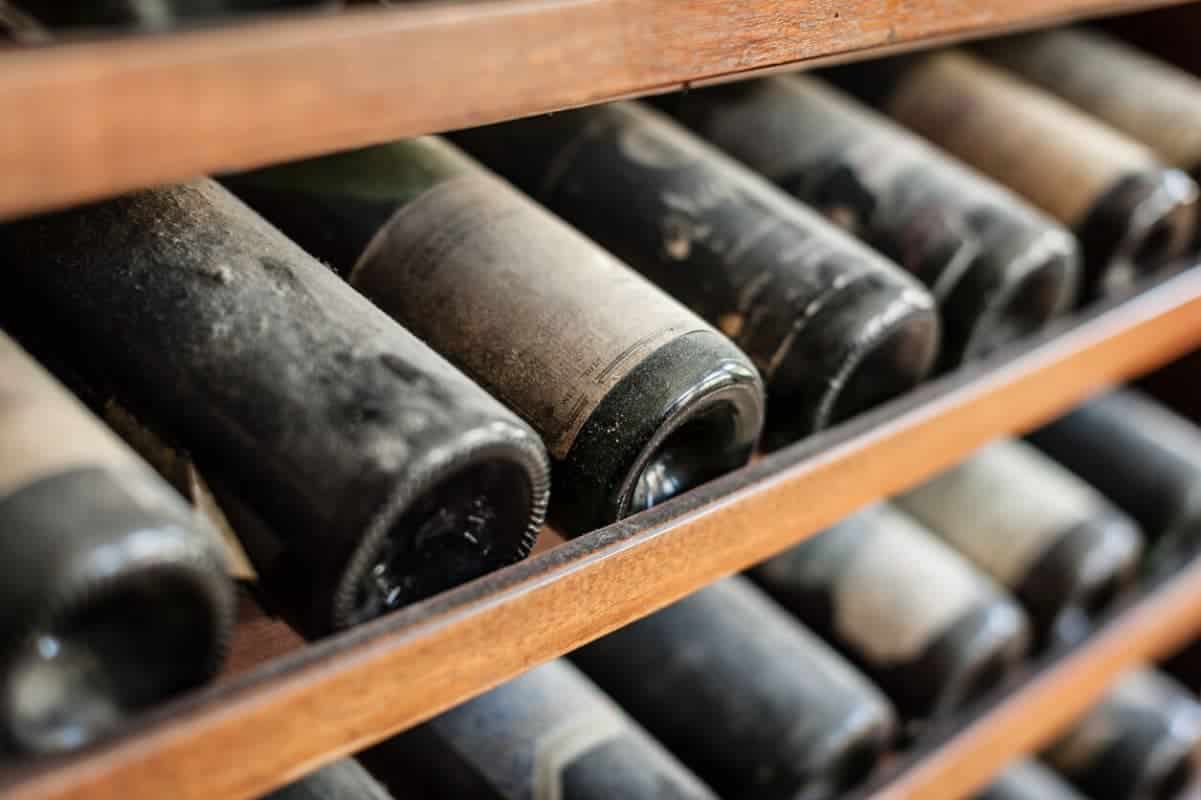How much should I pay for a good bottle of wine?
At Inspiring Wines we are all about delivering great wines at great prices, we’re always on the look out for new and exciting wines and winemakers, that is what we do. We have a wide range of wines from £5 to £55, but what should you be paying to make sure you are getting a good bottle?
It’s a very difficult question to answer, wine is without doubt an extremely subjective topic and very much down to personal taste, after all, one mans ‘Blue Nun’ is another mans Chateau Lafite! And vice versa. Defining what ‘good’ actually is, is not easy in the first place, it means different things to different people.
Lots of other factors can also play a part in how much you spend on a bottle, we’ve all spent far too much on a bottle of wine on holiday because we are, well, on holiday! And who hasn’t, slightly embarrassingly, scrapped together a fiver in change and nipped down to the corner shop for something cheap and cheerful?…No? Just me then?
Here at Inspiring Wines we are always strong advocates of the ‘if you like it then you drink it’ approach so does it matter how much you pay if you like it? Probably not, but that doesn’t help us answer our question so lets try to look at it a little more scientifically. If we actually look at a breakdown of the costs of each of the elements that go into producing a bottle of wine, you might be surprised to learn just where the money goes and on what. It may not change your opinion of how much you should spend for a ‘good’ bottle but it will open your eyes to what the typical costs are.
As I am sure you are aware, making wine is a difficult process and involves a lot of hard work and of course, time. It’s generally broken down into a number of stages, in very simple terms 5 key steps:
Growing and Harvest
Crushing & Pressing
Fermentation
Clarification
Ageing & Bottling
These are the typical stages of winemaking but as far as price goes you can also add marketing and logistics to that list, as they both incur and add notable cost to a bottle.
So if you start thinking about each of the steps in turn they have a significant cost associated to them, then of course there is the dreaded duty and VAT to add on. And lets not forget because it is very dear to my heart the producer and retailers margin of profit.
The simple diagram below breaks down the costs of a bottle at each price point.

This an indicative view, marketing and logistics can vary depending on the wine being produced and the distance it has to travel.
As you can see duty is the same across the board at £2.16 and VAT increases the more expensive the bottle gets. But the key figure to look at here is the number towards the base of each bottle, that figure is the approximate amount spent on the wine production itself, so in a £5.00 bottle of wine over half of the cost is tax and only 37p is actually spent on producing the wine. That’s 37p to complete all of the five steps listed above. In fact, in this example more is spent on the bottle itself and then getting it to you, than making the wine.
It is clear from the diagram that the more you spend on a finished bottle of wine the more is spent on producing the wine in it and by spending only a little more it is possible to increase the amount spent on the wine production and get much better value for your money. By spending between £7.50 and £10.00 on a bottle the percentage spent on the wine is vastly increased and the quality will improve. If you aim at wines between £10.00 and £20.00 then the amount spent on the wine quickly increases.
So, we know that typically for more expensive wines more is actually spent on producing the wine itself so if we apply common sense the quality is very likely to be higher. That’s not to say you must start spending more on your wine overnight, the ‘if you like it drink it’ caveat always applies at whatever cost certainly for me. And you should also factor in there are other reasons why a bottle could end up being more expensive. The cost of a bottle of wine can be significantly increased if, for example, one producer spends a whole lot more on advertising and marketing than another which wouldn’t necessarily increase the amount actually spent on the production of the wine but adds cost to the overall product.
And then there are, as with any commodity, the usual market forces to think about. Supply and demand can play a large part in how much a wine costs, and popularity as well. Prosecco is a great example of the latter at work over the past several years.
You should always bear in mind that price is not always an indication of quality and price should never drive taste. By that I mean just because you spend £25 on a bottle of wine won’t automatically mean you’ll like it. If price is your primary buying constraint and lets face it, unless your an Oligarch or play professional football for a living it is likely to be at some level, then the key is to expand your horizons when you can. You might not need to take a step up the price ladder but look at a step sideways and try something new. There is no doubt there are good wines in all price brackets however we now know that by spending £7.50 and above much more goes on the wine.
The important thing is to always take the opportunity to try something new, spend a few pounds more if you can, do you notice an improvement? Yes? Then try something else in that price bracket, this way you’ll develop an appreciation for wines you don’t yet know that you like. It doesn’t always have to be more expensive to be better but approaching some new wines will give you a sense of what else you might like.
Whatever you do, drink wine you enjoy! Try something new often! Occasionally spend a little more if you can afford it. You’ll soon find out if the additional cost is worth it.
So how much should you spend on a good bottle of wine? The answer to that question is very firmly in your hands and with your taste buds. It will be different for everyone. There is no doubt that the bigger the percentage of the cost of a bottle spent on the wine itself has to be a big factor in the quality of a wine, 37p after all doesn’t sound like a lot of money to produce 75cl of wine does it?
But as we said right at the start ‘good’ is difficult to define, if you love drinking a £5 bottle of wine then it is a ‘good’ bottle, we know the quality of the wine may increase as the price does but if it doesn’t taste good to you the it’s not a ‘good’ bottle.
In my personal experience spending somewhere in the £8 to £15 bracket offers access to a wealth of excellent quality wines, occasionally I spend a little more for a special bottle or a special occasion but at this price point there is loads of choice and some real quality to be had. That said I’m sure they’ll be another time I’ll be squeezing my hand down the back of the sofa to scrape a fiver together for a trip to the corner shop!…
Dean Spencer – Director – Inspiring Wines



Pingback: how much should you charge for a glass of wine – Ascharters
Pingback: how much should you pay for a good bottle of wine – Ascharters
Pingback: how much should a decent bottle of wine cost – Ascharters